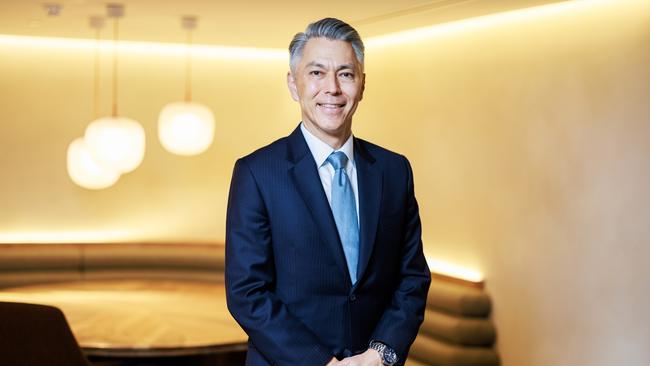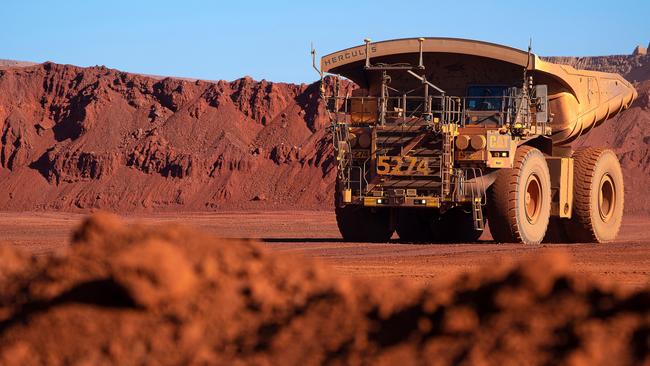
Although it made no official announcement, BHP makes it clear that its iron ore money could well be siphoned into critical minerals projects in countries rather than Australia, just as is happening with Rio Tinto
Given that the government has turned its back on our mining industry, it is stunning that the Prime Minister of Australia, Anthony Albanese, should take the slightest interest in the survival of Australia’s nickel industry.
Until the nickel price crisis erupted during the past year, Albanese and his team have been diligently working to do all they could to jeopardise mining projects like the South Australian copper basin development, which encompasses smelting and refining.
Back around 2022-23 when BHP bid for OZ Minerals, the Big Australian internally was planning strategies over the next decade on the basis that a $10bn-$15bn investment was almost certain to take place.
Fast forward to today and although there will obviously be some expansion, the $10bn-$15bn Australian project is now only a 50:50 possibility.
The clear message from BHP is that unless there can be a reasonable deal that exempts SA copper from the latest anti-mining legislation, the world’s biggest critical metal shortage – copper – will not be solved in Australia
The politicians on both sides of the parliament have enjoyed the revenue bounty that comes from iron ore, coal and LNG. In these exports Australia had a natural advantage over the rest of the world and so our politicians came to believe that our iron ore-coal-LNG advantage applied to the total mining industry,

Sadly for Australia, in the critical mineral space much of the minerals come from underground mining and there is often heavy investment required for treatment.
We have just seen Indonesia take the high-cost Australian industry to the cleaners even before the latest Albanese anti-mining laws which are designed made Australia even more uncompetitive.
BHP’s original plan for South Australia was to overcome the high costs with scale and efficiency; and given the demand for copper it should have worked. But suddenly Albanese and his government decided to pass legislation to try to increase the cost of iron ore mining with new labour laws – and then transpose those new labour laws into the high-cost South Australian project to reduce its efficiency and productivity.
It’s not going to work, so already BHP’s expansion in Chile becomes more imperative and in the US the giant Resolution copper mine – which has been held up by problems with the Indian community – becomes vital.
The total Resolution project matches the South Australian outlay, albeit that BHP only owns 45 per cent and Rio Tinto 55 per cent. The US Biden administration has tried to solve the problems. If Donald Trump becomes president almost certainly the project will go ahead quickly.
It won’t be easy for the Albanese government to cocoon the South Australian project from its anti-mining laws that are part of the industrial relations complex of laws. But the fact that within two months of passing its anti-mining laws the government is now at least looking at protecting nickel mining means that anything is possible.
While the debate in coming months will concentrate on saving the South Australian $10bn-$15bn copper project for Australia there are some fascinating developments taking place in other parts of BHP.
Stage two of the Canadian potash development will make BHP the world’s biggest potash miner by 2029. But then there are stages three and four in the pipeline to double that output. Potash is going to be a huge revenue earner for BHP
But it will require a vast amount of electricity and the Canadian government is encouraging the local generators to look closely at small-scale nuclear operations which will mean that BHP’s power costs in Canada will be much lower than those in South Australia where nuclear is banned.
In Chile BHP is undertaking extensive testing of the new leaching techniques that are being developed, including Rio Tinto’s so-called Nuton process that uses bacteria. It’s early days but BHP’s Chilean operation could be transformed.
The Chinese say they expect demand for steel to rise by around 17 per cent because of the requirements in global electrification
BHP has plans to further increase its iron ore output. But the company is a hematite iron ore miner and the current technologies to produce low-carbon iron from hematite are cheaper when applied to higher grade ores like magnetite.
Although Australia has some magnetite, the big deposits are in Africa and Brazil. But there are new technologies being developed for hematite where Rio Tinto has a process called BioIron. There will be great competition between technologies in coming years.




For this nation the nickel crisis is almost irrelevant when compared with the dangers now facing Australia’s biggest critical minerals operation, the $10bn-$15bn copper development in South Australia.